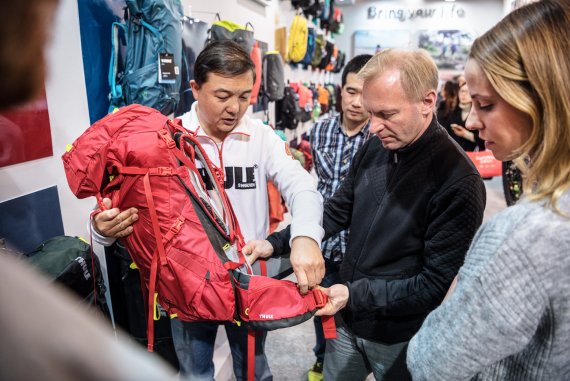
Names give orientation. Names give clarity. Names give identity. But names can also mislead. In the worst case, they can even have a negative impact on the reputation of a person, a product or a company. This was the case, for example, with car manufacturer Volkswagen, which made a slight error in naming its Phaethon sedan in 2001.
In Greek mythology, Phaethon is the son of the sun god Helios, who borrows the solar chariot of Lord Papa, cannot control it and triggers a catastrophe of universal proportions. Long story short, the association of "ancient crash kid Dennis" with the company's new flagship did not go down particularly well.
Naming becomes even more difficult when, for example, the company name has to be translated for markets such as China and completely new characters are used. Here, several stumbling blocks lurk that Western companies have to consider.
Probably the most practical option is a mixture of transliteration and carefully selected Chinese characters. One of the better examples here is the automobile manufacturer BMW. Known in Chinese as "bao-ma", in German it means something like "valuable horse" - thus an extremely positive paraphrase of a luxury automobile brand.
A simple "one-to-one" transliteration is not bad per se, but it usually ends up with true character monsters in Chinese. These are then neither particularly easy to pronounce, nor do they have a symbolic meaning. And in the worst case, there is a meaning after all: the social network "Facebook" can sing a sorry song about this.
The transliteration "Fēi sǐ bùkě" pronounced "fay-suh boo-kuh," is extremely similar to the statement "have to die" in Chinese and thus regularly causes spiteful comments.
So it's not exactly easy to establish the company name in the Chinese market, which naturally raises the question: Why not just stick with the Western spelling and simply avoid potentially embarrassing translations? After all, many Chinese already speak good English, for example, and are well-traveled and have international contacts.
This may be a valid argument, but unfortunately it falls a bit short for several reasons. Even in international companies, Chinese employees speak Chinese among themselves and in contact with authorities or suppliers. Which ultimately requires an appropriate Chinese name.
In addition, even the most international customers are embarrassed by the correct pronunciation of difficult brand names. Incorrect pronunciation or emphasis of the name would be tantamount to a loss of face, which one would like to spare the paying clientele at all costs.
Those who nevertheless forgo a Chinese name place their fate in the hands of customers and employees, who then simply improvise. This was a lesson for the outdoor company "The North Face", which was initially called "le si fe si". Meaning of the transliteration? None!
Subsequently, there was a word-for-word translation to "bei lian", i.e. "North Face", which also still doesn't seem to be really successful. In the end, "The North Face" stuck with a similar fan nickname: "bei mian". Translated, it means "north.
The Dallas Mavericks, NBA club of German basketball legend Dirk Nowitzki, proved how to use their fan base properly. For about 20 years, the Mavericks were known as "xiao niu" meaning "little cows" in China, which has relatively little to do with the actual translation of a Maverick, namely a wild horse.
So at the end of last year, the club with owner Mark Cuban decided to ask the fans in China for their opinion on what the 2011 NBA champion should be called from now on. Using a video message on Weibo - the Chinese Twitter - Cuban called on fans to submit ideas, and after just two weeks there were more than 50,000 suggestions. Thanks to clever fan involvement, the days of the "little cows" from Dallas are now over and the era of the Dallas "Lone Ranger Heroes" has dawned.
Symbolically, that may still be a bit crooked, but at least the Mavericks are no longer lazy ruminants.
The club and its owner, Mark Cuban, ultimately decided last year to ask fans in China what they thought the 2011 NBA champions should be called from there on out. Cuban called on fans to submit ideas using a video message on Weibo - the Chinese Twitter - and after just two weeks, there were more than 50,000 suggestions. Thanks to the clever fan integration, the days of the “little cows” from Dallas are now over, and the era of the Dallas “Lone Ranger Heroes” has begun.
This may still be a bit off symbolically, but at least the Mavericks are no longer sluggish cud-chewers.
- Awards
- Mountain sports
- Bike
- Fitness
- Health
- ISPO Munich
- Running
- Brands
- Sustainability
- Olympia
- OutDoor
- Promotion
- Sports Business
- Textrends
- Triathlon
- Water sports
- Winter sports
- eSports
- SportsTech
- OutDoor by ISPO
- Heroes
- Transformation
- Sport Fashion
- Urban Culture
- Challenges of a CEO
- Trade fairs
- Sports
- Find the Balance
- Product reviews
- Newsletter Exclusive Area
- Magazine






